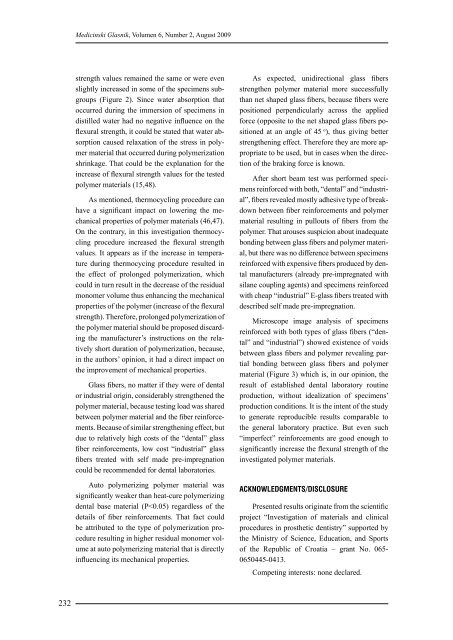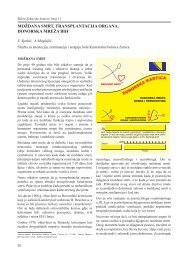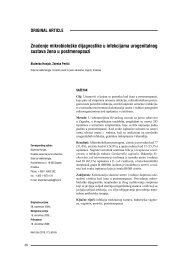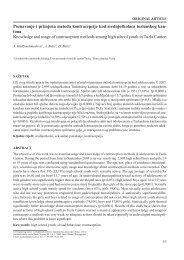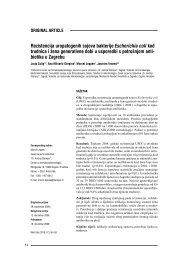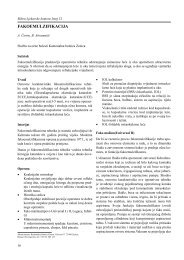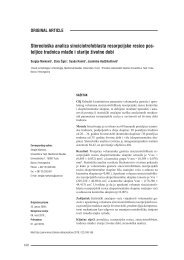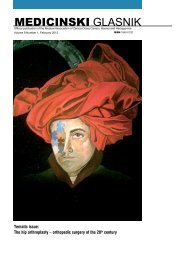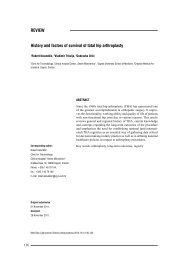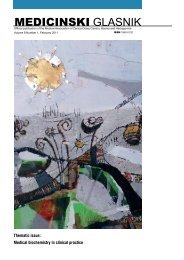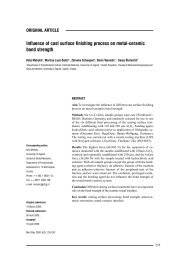MEDICINSKI GLASNIK
MEDICINSKI GLASNIK
MEDICINSKI GLASNIK
You also want an ePaper? Increase the reach of your titles
YUMPU automatically turns print PDFs into web optimized ePapers that Google loves.
232<br />
Medicinski Glasnik, Volumen 6, Number 2, August 2009<br />
strength values remained the same or were even<br />
slightly increased in some of the specimens subgroups<br />
(Figure 2). Since water absorption that<br />
occurred during the immersion of specimens in<br />
distilled water had no negative influence on the<br />
flexural strength, it could be stated that water absorption<br />
caused relaxation of the stress in polymer<br />
material that occurred during polymerization<br />
shrinkage. That could be the explanation for the<br />
increase of flexural strength values for the tested<br />
polymer materials (15,48).<br />
As mentioned, thermocycling procedure can<br />
have a significant impact on lowering the mechanical<br />
properties of polymer materials (46,47).<br />
On the contrary, in this investigation thermocycling<br />
procedure increased the flexural strength<br />
values. It appears as if the increase in temperature<br />
during thermocycing procedure resulted in<br />
the effect of prolonged polymerization, which<br />
could in turn result in the decrease of the residual<br />
monomer volume thus enhancing the mechanical<br />
properties of the polymer (increase of the flexural<br />
strength). Therefore, prolonged polymerization of<br />
the polymer material should be proposed discarding<br />
the manufacturer’s instructions on the relatively<br />
short duration of polymerization, because,<br />
in the authors’ opinion, it had a direct impact on<br />
the improvement of mechanical properties.<br />
Glass fibers, no matter if they were of dental<br />
or industrial origin, considerably strengthened the<br />
polymer material, because testing load was shared<br />
between polymer material and the fiber reinforcements.<br />
Because of similar strengthening effect, but<br />
due to relatively high costs of the “dental” glass<br />
fiber reinforcements, low cost “industrial” glass<br />
fibers treated with self made pre-impregnation<br />
could be recommended for dental laboratories.<br />
Auto polymerizing polymer material was<br />
significantly weaker than heat-cure polymerizing<br />
dental base material (P


